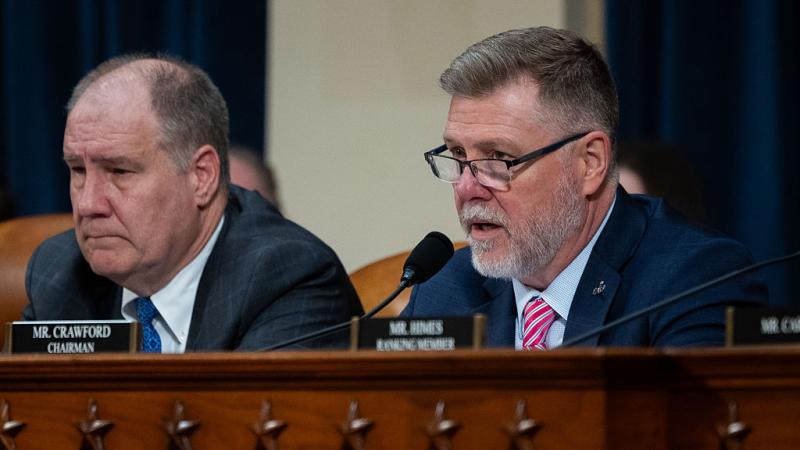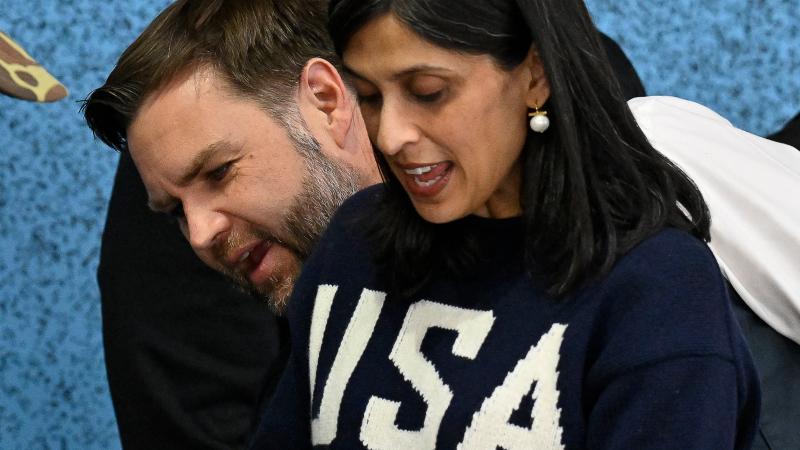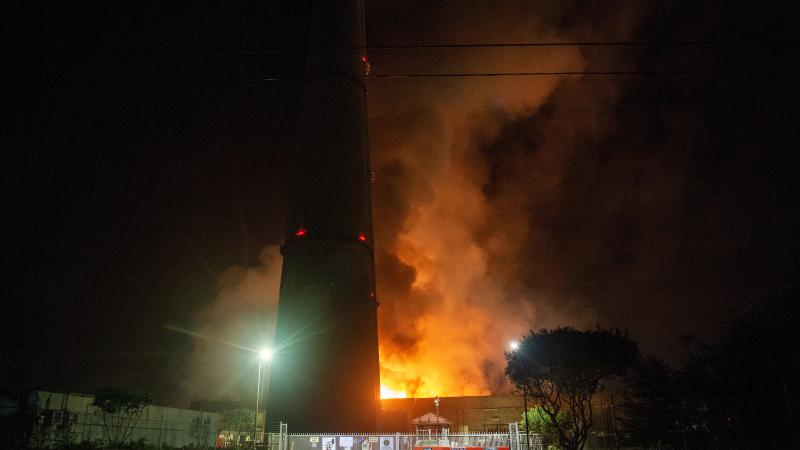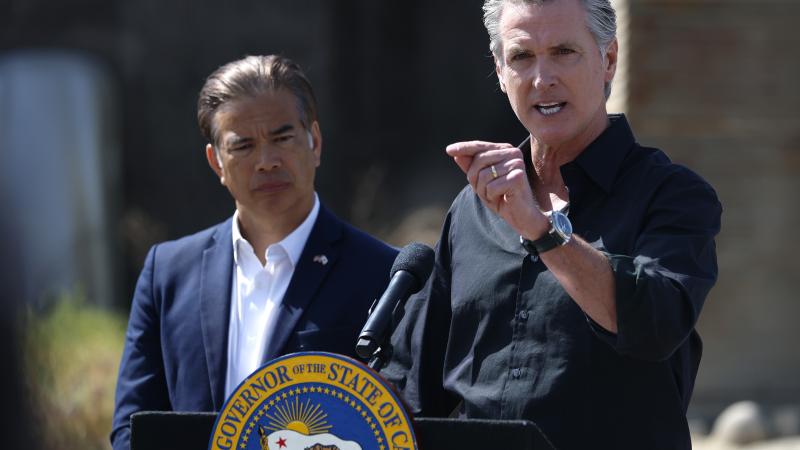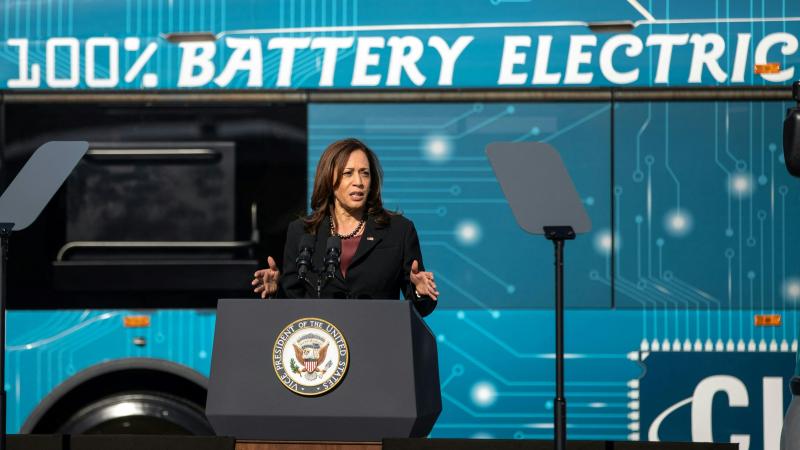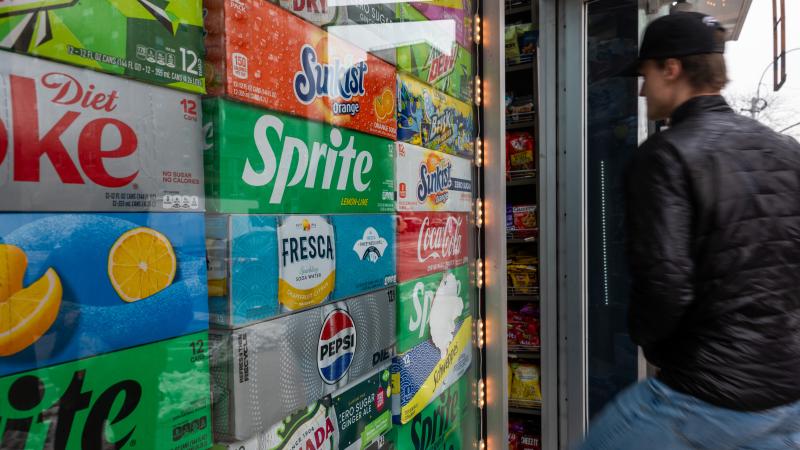Battle between religious liberty and pandemic security may reach Supreme Court
AG Barr says he may take action this week to resolve tensions between localities and religious leaders.
A federal judge suggested the city of Louisville’s efforts to stop a drive-in Easter service was tantamount to a plot to criminalize religion. The Kansas Supreme Court, however, upheld a ban on religious gatherings of 10 or more people.
And a Florida megachurch pastor was arrested for defying stay-at-home orders and holding church in person. He finally relented and chose to hold Easter services online.
With controversy and uncertainty, the pandemic has ignited an extraordinary battle across America between religious liberty and the security state’s efforts to slow the coronavirus. It’s one that could finally land at the U.S. Supreme Court.
Attorney General William Barr has put the nation on notice that he is watching and may take legal action this week.
“During this sacred week for many Americans, AG Barr is monitoring govt regulation of religious services,” Justice Department spokeswoman Kerri Kupec tweeted out on her official account Saturday night. “While social distancing policies are appropriate during this emergency, they must be applied evenhandedly & not single out religious orgs. Expect action from DOJ next week!”
In an interview earlier in the week with Fox News' Laura Ingraham, Barr suggested some restrictions on everyday American life had become “draconian.”
The battle has played out across the country and led to some dramatic events already. In California, pastor Rob McCoy, who served as a city council member, resigned his government position to protest city regulations keeping him from serving his flock.
And the case in Louisville, Ky., where the city’s Democratic mayor tried to ban drive-in church services, landed in federal court after many questioned how a person could access drive-in food service but not church by car.
“An American mayor criminalized the communal celebration of Easter,” U.S. District Judge Justin Walker wrote while issuing a temporary restraining order Saturday against the mayor’s ban. “That sentence is one that this Court never expected to see outside the pages of a dystopian novel, or perhaps the pages of The Onion.
”The Mayor’s decision is stunning. And it is, ‘beyond all reason,’ unconstitutional,” the judge wrote.
But hundreds of miles away in Kansas, Democratic Gov. Laura Kelly won a legal battle over what has been dubbed the “War over Easter” when the state’s Supreme Court rejected a Republican legislative effort to allow religious services in violation of the governor’s ban on gatherings of 10 or more people.
That decision came after both sides provided their arguments in a remote court sessions that used the online videoconferencing service Zoom, just one of the many signs of the extraordinary times America finds itself in.
Legal experts say the legal battle over the pandemic restrictions will revolve around the concept of equal treatment under the law: a church must be treated the same as other institutions.
Hence, as played out in Kentucky, drive-in church services were viewed similarly to drive-in restaurant services. But if all facilities are banned from having 10 or fewer people indoors, then a church must comply, experts said.
“Free exercise does not immunize dangerous acts,” tweeted Jonathan Turley, a constitutional law professor at George Washington University. “A pastor cannot disregard limits on congregation size to combat a pandemic threat any more than a fire threat.”
Wendy Mariner, a professor of health law at Boston University, agreed in a recent USA Today article, but raised the question of what happens if such restrictions carry on for a long time.
“There is understandable concern for civil liberties, because emergencies are exceptions to the rule of law," Mariner told the newspaper. "Depending on how long an emergency lasts, those exceptions can become normal.”
And that is a question the Supreme Court may ultimately be asked to resolve.
The Facts Inside Our Reporter's Notebook
Links
- Florida megachurch pastor was arrested
- Justice Department spokeswoman Kerri Kupec tweeted
- Barr suggested some restrictions
- California Pastor Rob McCoy resigned his government position
- U.S. District Judge Justin Walker decision in Louisville
- Democratic Gov. Laura Kelly won a legal battle
- Jonathan Turley tweet,
- Professor Mariner told USA Today




